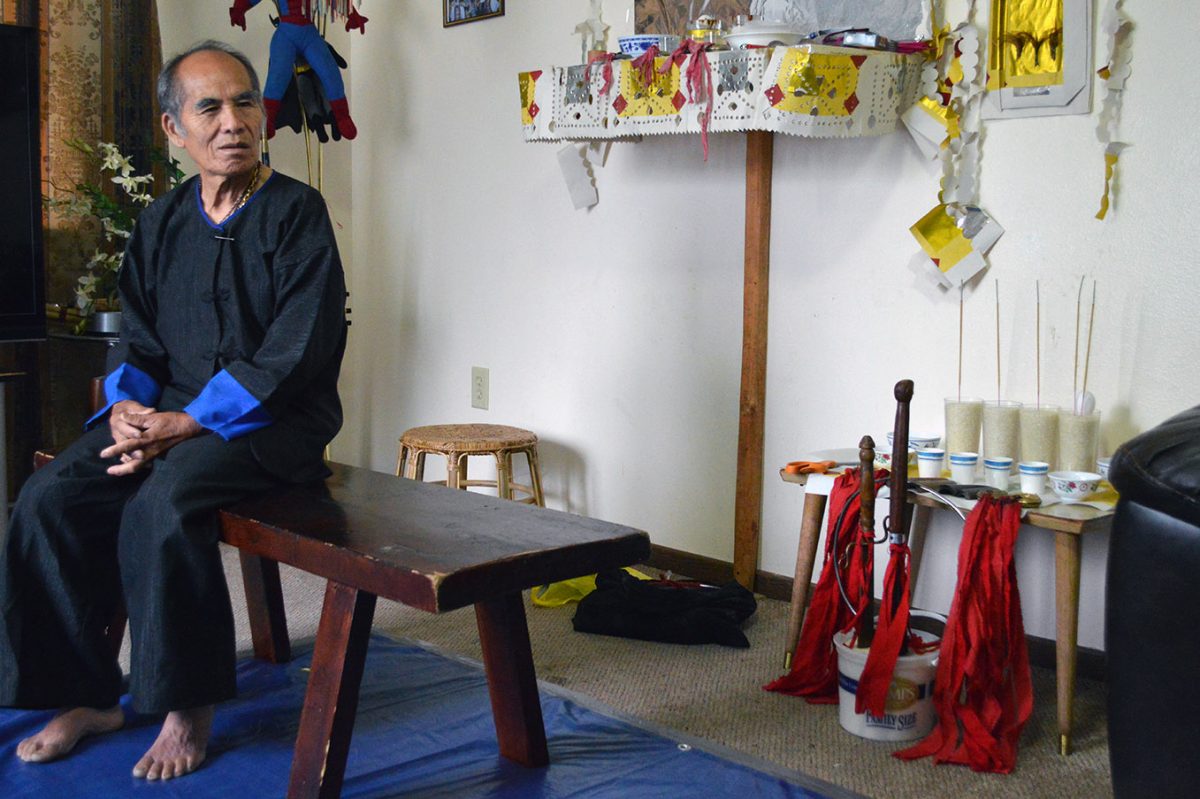Storytelling holds a profound significance in Hmong culture by encompassing not only traditions, history and values but also beliefs.
Hmong religion is deeply rooted in animism, the belief that natural objects have a soul or spirit, shamanism, a spiritual practice that involves communication with the spirit world and ancestor worship. These religious beliefs are closely intertwined with the myths of the Hmong community.
These myths are wide-ranging and encompass numerous aspects of existence, like birth, marriage, death, everyday routines and more.
Here is a list of five Hmong beliefs to learn about that many Hmong people may have heard growing up.
Pointing at the moon
As children, we’re taught from our parents that actions have consequences. A common example used by parents in Western culture is to not touch the stove, or else you’ll get burnt.
In the case of many Hmong children, they’re taught to not point at the moon because if they did, the moon would be offended and cut their ear.
Some believe that to prevent the cut on the ear from happening, one could rub saliva on the back of their ear and ask the moon for forgiveness.
Dreaming of snakes or melons
You may have heard of old wives’ tales about how certain things could predict the sex of a baby.
One such tale that is popular in Western culture is that if a pregnant woman is craving salty or savory foods, she is going to have a boy and if she craves sweet foods, she will have a girl.
For Hmong people, they believe that if you have a dream of a snake, someone you know will be expecting a baby boy. While a dream about melons, means someone you know will be pregnant with a baby girl.
Don’t call a baby cute
This belief has a hard rule for some to follow. Hmong people believe you shouldn’t call a baby cute because evil spirits will hear and want to take the baby away.
Instead, Hmong people believe that if you’re going to describe a baby, use words that aren’t much of a selling point. For example, a word like “stinky” could work because it will convince the spirits to not take the baby away.
Don’t fall at a funeral
There are many things one shouldn’t do at a Hmong funeral but one of the most important things to avoid is trip and fall.
It is believed that if someone falls at a Hmong funeral they will be vulnerable to the spirits that are there and that those spirits will take their spirit away and they will end up sick.
In the case someone were to fall at a Hmong funeral, the remedy would be to call a shaman over to perform a ritual to call the fallen person’s spirit back.
Poking a hole through a leaf
The saying “curiosity killed the cat” can be applied to many Hmong beliefs, especially the one about poking a hole through a leaf.
Hmong people believe you shouldn’t poke a hole through a leaf and look through it because if you do so, you will see ghosts and spirits.
These beliefs the Hmong people have serve as a means of respecting tradition but also help shape behaviors and attitudes of younger generations by instilling a sense of cultural identity and a commitment to values.




























































































































